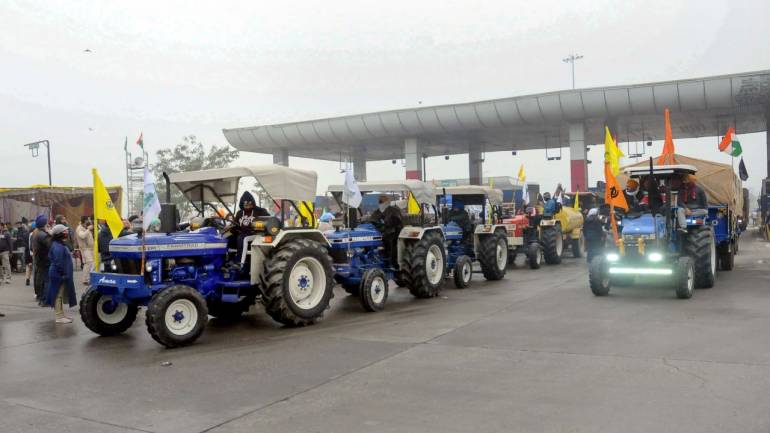
Team News Riveting
New Delhi, January 31
The farmers unions had proved that most of the people had been “forced” to join the agitation and they had not come out voluntarily to oppose the three farm laws enacted by the Narendra Modi Government.
This was established by the reports coming in that village panchayats in Punjab and Haryana had issued diktat for the people to either join the farmers’ agitation or pay fine. In case of failing to pay fine, the person and his family would face social boycott in the village.
Had the farmers voluntarily joined the agitation, why had the organisers been issuing whip to the farmers reluctant to support? Moreover, the organisers might come out with the excuse that it had not come out with such a whip and the village panchayat had taken the decision. In such cases, the organisers must promptly react and castigate the panchayats.
Experts believe that the move was a desperate bid to revive the dwindling farmers’ agitation following the ugly January 26 episode in which the farmers ran a shameless riot across the national capital and at the iconic Red Fort.
At least five village panchayats in the Malwa region of Punjab had passed a resolution asking each household to send at least one male member for a week to the protests. Additionally, families that refused to follow the resolution would be made to pay a fine, which according to the panchayats, was a way of motivating households to participate.
Since November 26, 2020, farmers have been protesting at the borders of Delhi against the three contentious laws that were passed by the Centre.
This latest call for support in the protests comes at a time when the protesters are coming under criticism over isolated incidents of violence in the nation’s capital during the tractor rally on Republic Day.
Ironically, those who are advocating democracy are mum on the issue of village panchayat coming out with diktat.



